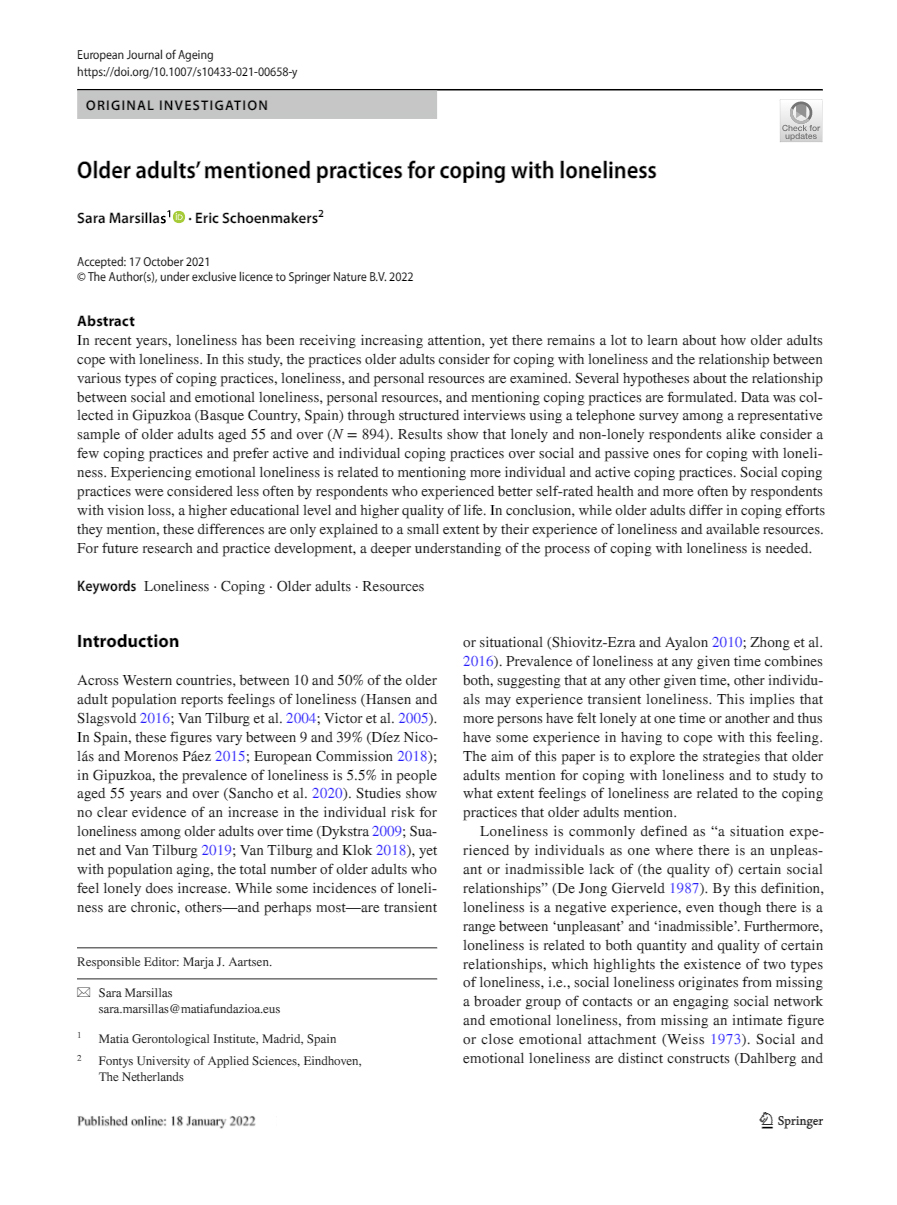Practices mentioned by older adults to cope with loneliness

European Journal of Ageing. [Published online]
In recent years, loneliness has received increasing attention, but much remais to be learned about how older people cope with this experience. In the present study, we examine the practices that older adults consider to cope with loneliness and the relationship between various types of coping practices, types of loneliness and personal resources. Data were collected in Gipuzkoa (Basque Country, Spain) by means of structured interviews via a telephone survey among a representative sample of older adults aged 55 and over (N=894). Several hypotheses are formulated about the relationship between social and emotional loneliness, personal resources and the coping practices mentioned.
The results show that both lonely and non-solitary respondents preferred active and individual coping practices over social and passive coping practices. In addition, social coping practices were considered less frequently by respondents who experienced better self-rated health and more frequently by respondents with vision loss, higher educational level and higher quality of life. In conclusion, although the coping efforts mentioned vary, these differences are only to a small extent explained by their experience of loneliness and available resources. For future research and practice development, a deeper understanding of the process of coping with loneliness is needed.

